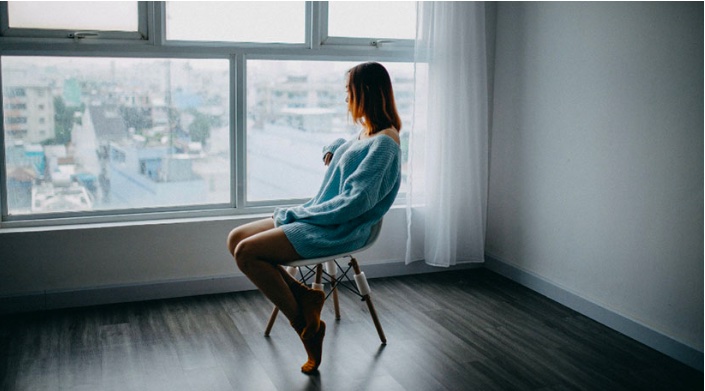
Photo credits: Anthony Tran - Unsplash
Adriana van Dooijeweert
President, Netherlands Institute for Human Rights
Introduction
Just like everywhere in the world, also in the Netherlands violence against women is a widespread and serious problem. The Netherlands Institute for Human Rights (the Dutch national human rights institution) has had this issue on the agenda since its establishment. It has, for example, encouraged the Netherlands to ratify the Council of Europe Convention on Preventing and Combating Violence against Women and Domestic Violence (Istanbul Convention) and discussed with Dutch government officials and professionals, on various occasions, the human rights aspects of violence against women.
National human rights institutions fulfil an important role in promoting and protecting international human rights standards. It does so, among others, by monitoring the implementation of the recommendations of regional and international monitoring bodies. The Netherlands Institute for Human Rights (“the Institute”) therefore takes due note of the comprehensive report of the Group of Experts on Violence Against Women (GREVIO) on the Netherlands situation, published on 20 January 2020. GREVIO monitors the implementation of the Istanbul Convention. GREVIO based its findings on the report submitted by the Dutch government, reports submitted by the Institute and by many non-governmental organisations, in addition to information obtained during a five-day evaluation visit to the Netherlands. All reports, as well as the government response to GREVIO’s report, can be found on the country page on the Netherlands. In this blog, I discuss key recommendations from GREVIO’s Baseline report addressed to the government.
Violence against women in the Netherlands: some data
Each year in the Netherlands, approximately 33 women are killed by their partners or ex-partners. According to recent research, in the past five years approximately 747.000 individuals over 18 have experienced physical and/or sexual violence in the private sphere. Notably, more than half of the domestic violence cases concern violence by partners or ex-partners. It is worth noting that these figures do not include psychological violence. This form of domestic violence is also grave and pervasive.
In almost 20% of the reported cases, the violence is of a structural nature, that is, occurring regularly each month, week or day. The majority of the victims are women: approximately 97.000.
These figures are alarming themselves. However, what is also alarming is that the number of victims has not decreased over the years.
Why is this happening? According to Statistics Netherlands, which annually publishes the data on murder and manslaughter in the Netherlands, killings by a partner or ex-partner can be explained by domestic circumstances, such as fights between spouses and jealousy. Such language seems to imply that it is a fact of life that lovers fight, and that by accident such fights get out of hand. However, all these incidents should not be seen in isolation. It is not a coincidence that in almost all lethal domestic fights it is a woman who is murdered by her partner or ex-partner. Similarly, it is not a coincidence that mostly women are confronted with sexual harassment in the workplace, or with sexist remarks and physical harassment in the street and other public places.
Need to treat gender-based violence as a human rights issue
As reiterated in the Istanbul Convention, violence against women is a violation of women’s human rights, and should be addressed as such. A comprehensive human rights-based approach should be taken to address the underlying causes of violence against women and to protect victims. Action should be taken to empower women, strengthen their human rights protection and eliminate stereotypical views on the role of women and men in society.
Violence against women is not a women’s problem, it is a problem of society as a whole. While the Dutch government accepts this in theory, this is insufficiently reflected in policy, especially in the policy on domestic violence against women. As GREVIO observes in the Baseline report, the programme entitled Violence does not belong at home insufficiently addresses the power imbalance between women and men and its impact on women’s exposure to and experiences of violence. It concludes that Safe Home organisations tend to treat male intimate partner violence against women as a problem among equals, and insufficiently seek to clearly establish responsibility for abuse and control.
The Institute is concerned by the lack of a thorough understanding of gender as a factor in domestic violence and the absence of comprehensive and coordinated gender-sensitive policy measures to address violence against women and domestic violence. It is clear that current policies insufficiently address the root causes of violence against women.
Some examples may illustrate this. Men may find it difficult to accept that a woman breaks up a relationship and moves on without him. We have encountered dramatic incidents where this resulted in men stalking their ex-partners, online and offline. During my recent visit to the Caribbean part of the Netherlands, NGOs informed me about the gravity and scope of domestic violence against women in this part of the Kingdom. They explained that it is difficult to address, because many people regard it is as part of their culture, and beating is even seen as a sign of affection. This makes clear how important it is that there is not only adequate support for victims of violence, but also that the root causes of gender inequality are addressed. Only then will violence against women be eradicated.
In order to address gender-based violence, it is imperative to strive towards gender equality and to apply a gender perspective in the implementation of human rights. As the European Court of Human Rights concluded in the 2019 Volodinav Russia judgement, ‘Substantive gender equality can only be achieved with a gender-sensitive interpretation and application of the [European] Convention [on Human Rights] provisions that takes into account the factual inequalities between women and men and the way they impact women’s lives.’
The Baseline report identifies the consequences of the gender-neutral policy on domestic violence adhered to by the government. As GREVIO concludes: the main policy document on domestic violence in the Netherlands sets out a view of domestic violence that is gender neutral with no recognition for women as a group at particular risk from gender-based harm. It states on p. 6 that ‘Gender-neutral policies bear the risk of interventions by professionals that lack gender sensitivity, lead to gaps in protection and support and contribute to the re-victimisation of women.’ In concrete cases, this can imply that professionals treat violence by a male partner as a problem among equals. The consequences of exercising power and control are not recognised, or are not addressed properly. The Dutch government needs to take this overall conclusion to heart.
Increased risk of domestic violence due to COVID-19 pandemic
Present day circumstances, where many are confined to their homes due to the COVID-19 pandemic, imply a risk that domestic violence against women and children increases. Home is not a safe place for everyone. As the president of GREVIO observed in a statement, the restrictions on movement offer abusers additional power and control. There is a risk that some women victims of violence are deciding against seeking medical attention for fear of contagion, or that shelters are unsure how to manage the risk of infection. In the Netherlands, we see that shelters and support services are reaching out to (potential) victims by offering on-line counselling and counselling by phone when possible. Emergency shelters remain available. The government has recognised the work of professionals offering shelter and support services as a ‘crucial’ service. This means that services continue to be offered as much as possible, in an adapted form when necessary. The government provides funding for additional digital support services and care without physical contact. It is encouraging to see that the increased risk is taken so seriously and we have great respect for all professionals who continue to provide these crucial services under these challenging circumstances.
NIHR strategic programme gender equality
The Netherlands Institute for Human Rights has recently adopted its new four-year strategic programme. Gender equality is one of the two strategic themes it will focus on. Domestic violence against women by partners or ex-partners is one of the core issues we will work on. With the new strategic programme, we commit ourselves to further intensify our efforts to contribute to a society in which women and girls can live a life free from violence. We will do so from our unique position as an NHRI: by advising the government on laws, policies and practice and critically monitoring the progress in the implementation of the Istanbul Convention. We will closely cooperate with all relevant partners in society, including professionals, non-governmental organisations and academics. We welcome readers of this blog who are interested in cooperating to contact us.
Bio
Adriana van Dooijeweert has been chair of the Dutch national institute for human rights since 1 September 2015. She previously chaired the Advisory Committee on Immigration Affairs. She has been a judge and coordinating vice president in various sectors of the courts in Den Bosch and The Hague for nearly 30 years.

For further information: i.boerefijn@mensenrechten.nl